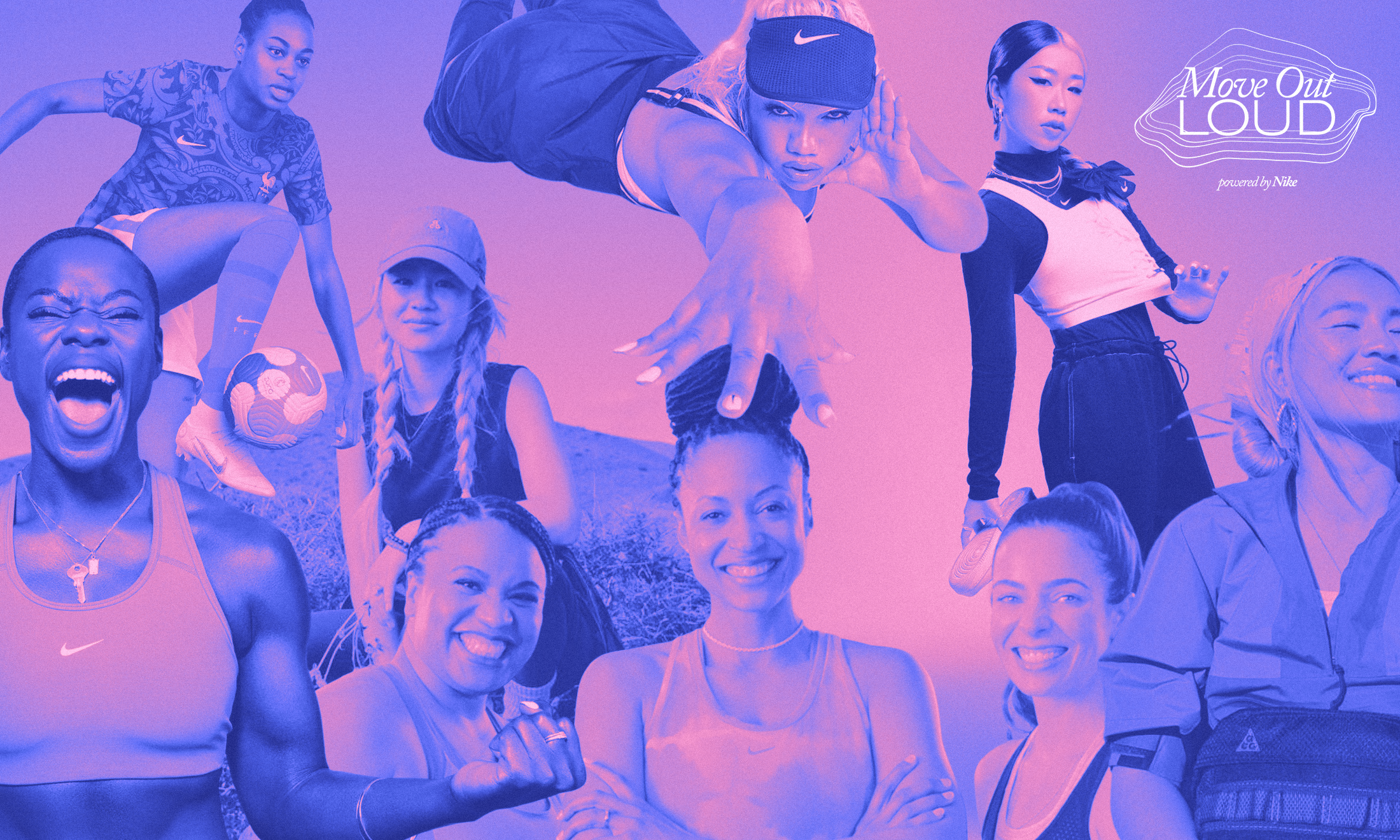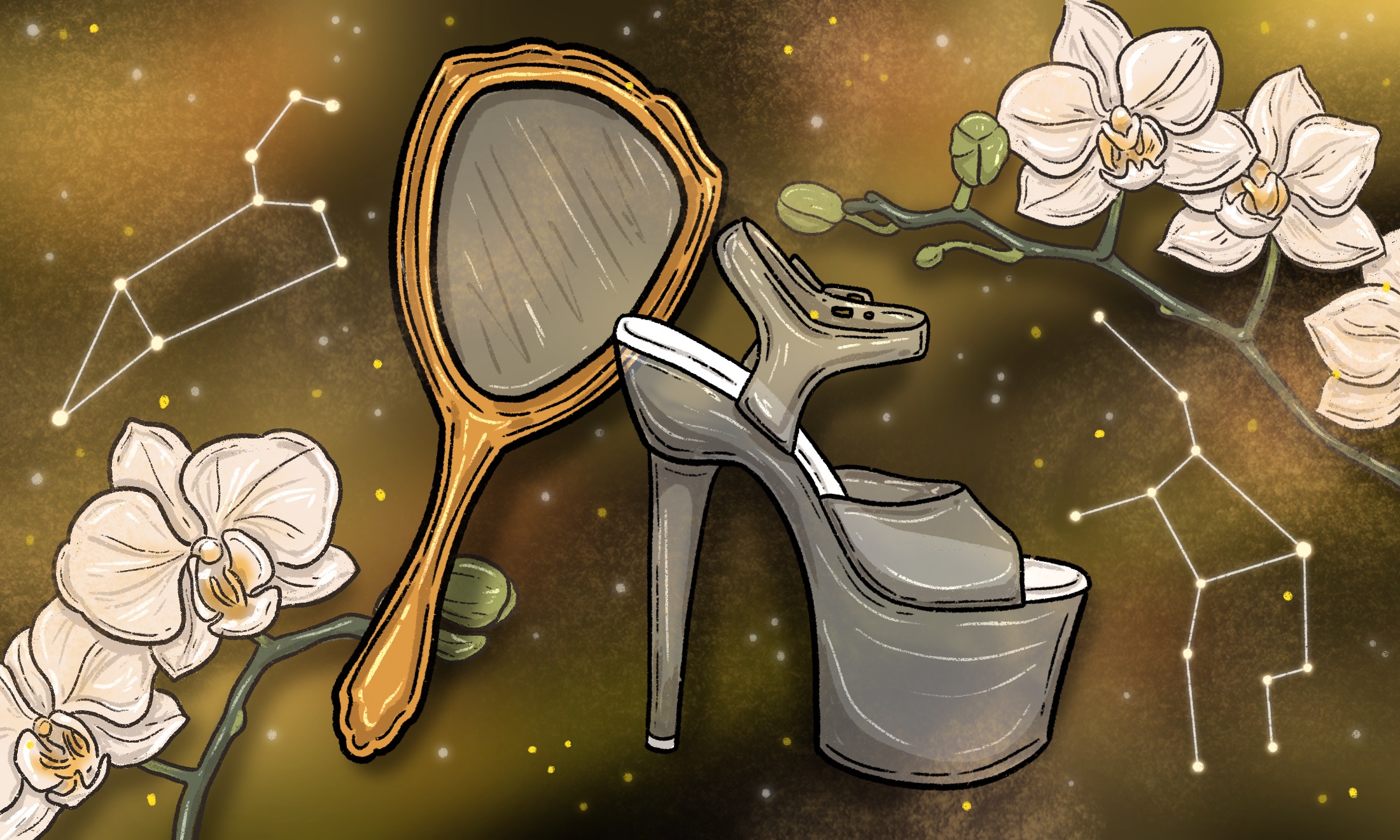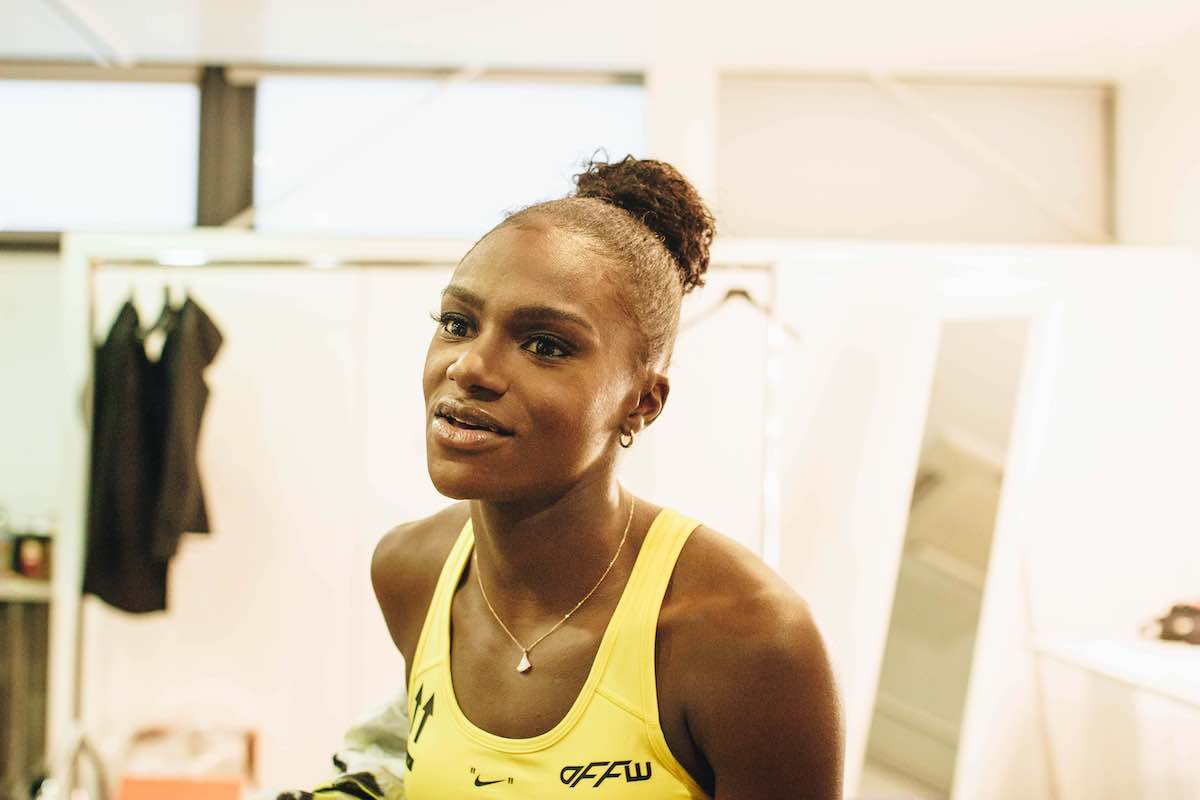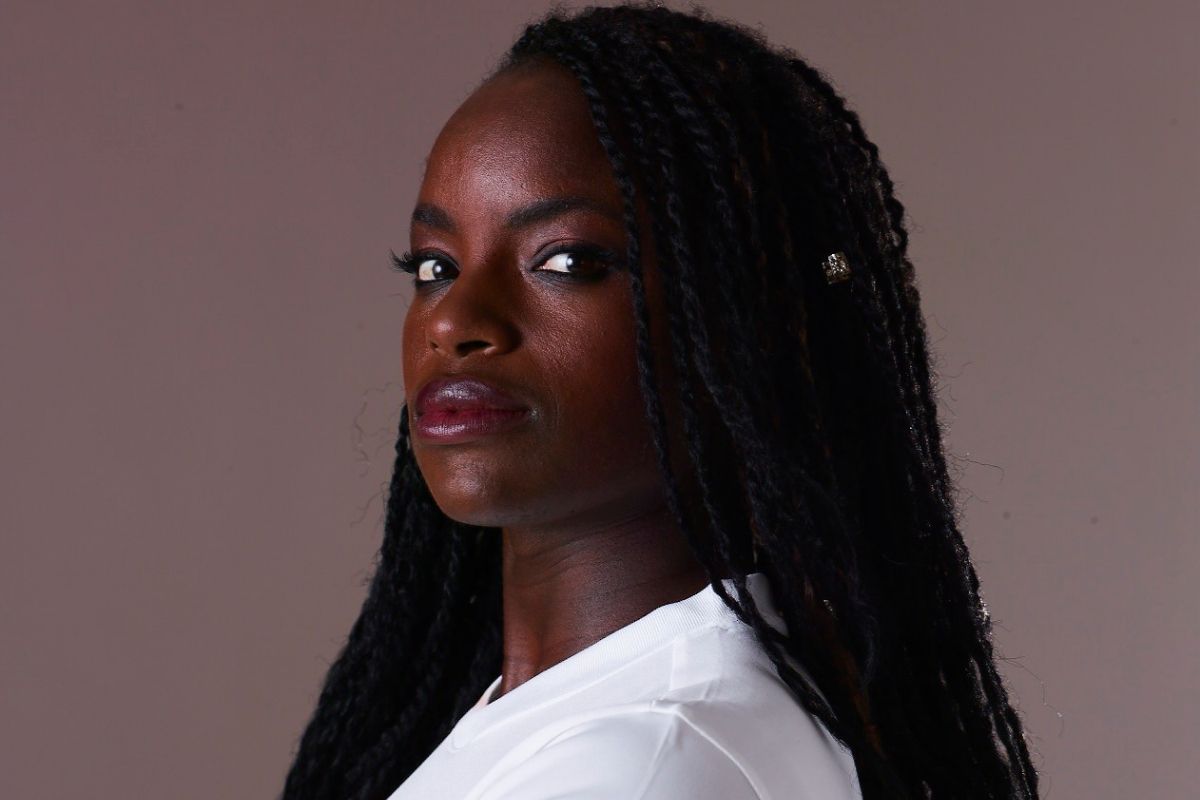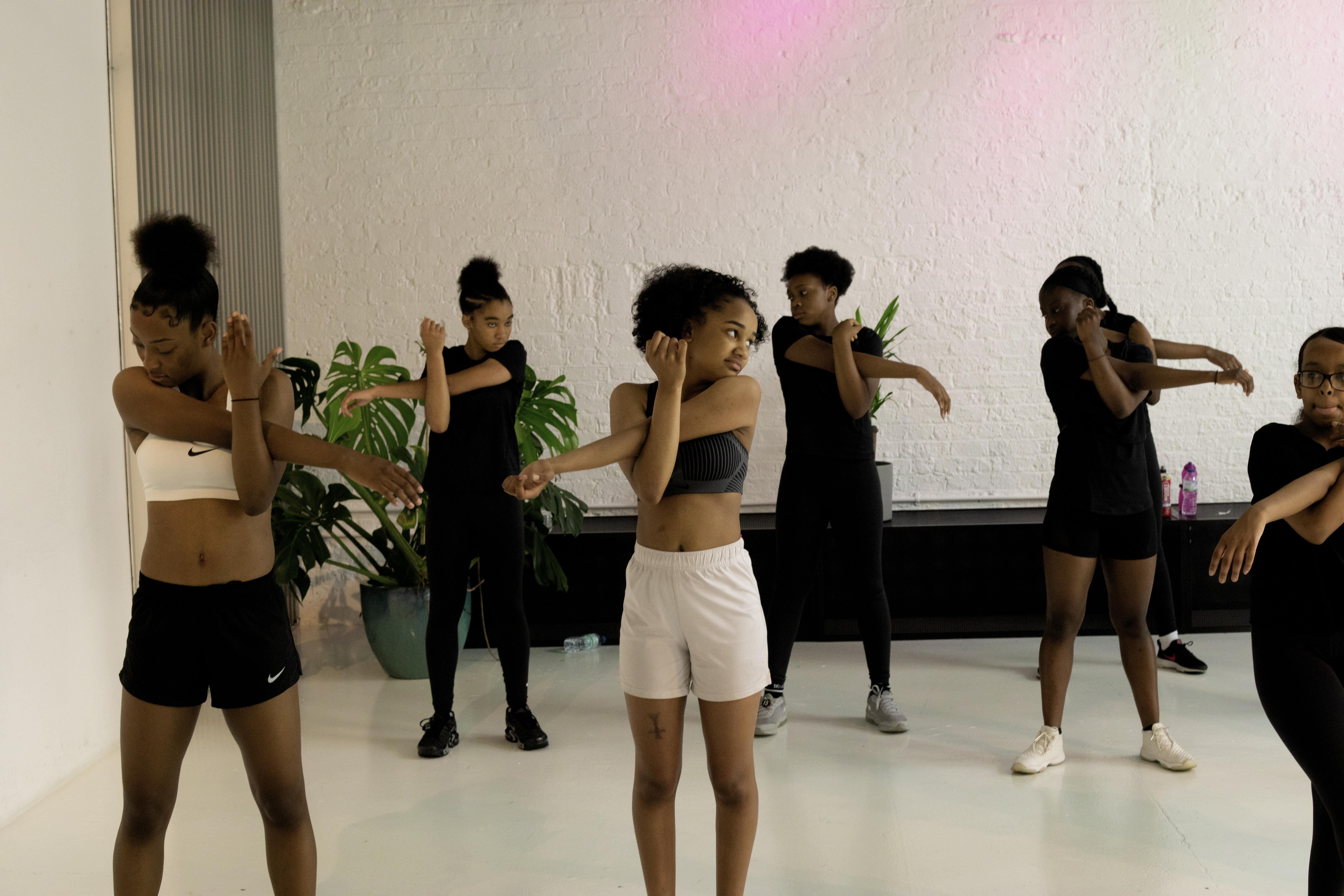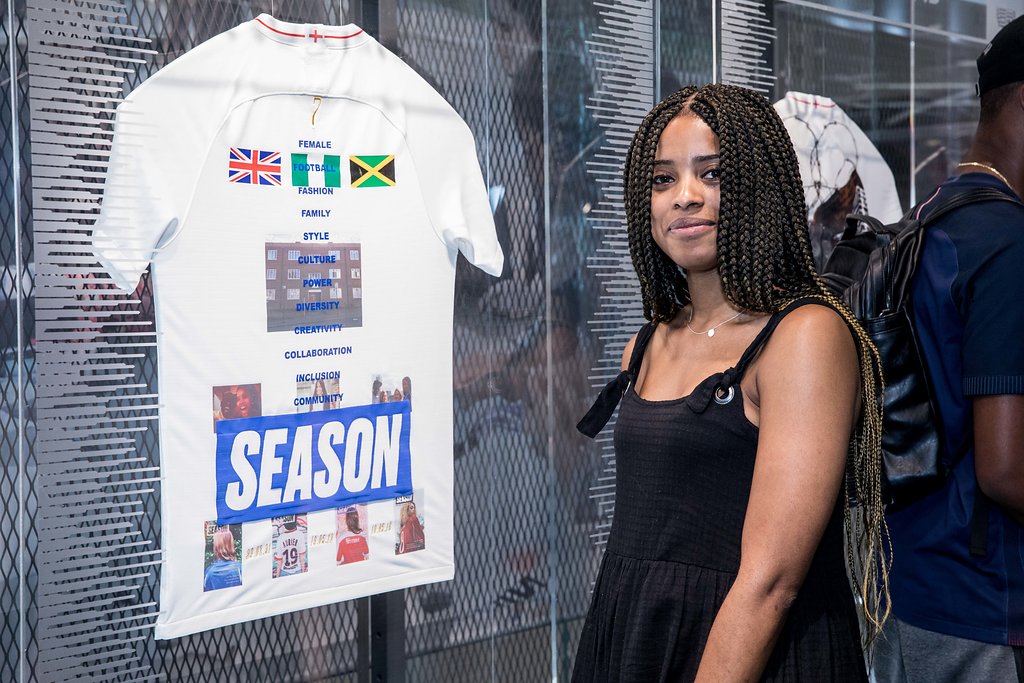
Football and fashion zine-maker Felicia Pennant is changing the game for women
Heather Barrett
25 May 2018
Paid for content in collaboration with Nike: White Shirt Project
Felicia Pennant is the founder and editor-in-chief of SEASON, an independent magazine and platform that champions women’s football and fashion. The 26-year-old Central Saint Martins alumni grew up in south-west London. Her boundless energy, desire for women to be seen, and unending passion for football create an unstoppable force, here to change the game for good. Most recently, she has collaborated with Nike Football on their White Shirt Project, becoming one of a selection of progressive communities, athletes and artists to redesign the England team jersey using inspiration from her own journey.
Felicia began SEASON in 2016 after she realised there was no platform for creative women who were into football. “When you Google women football fans it comes up with really sexualised imagery, not really many women of colour either, and there are just images but never a voice attached to it,” she tells me. Felicia thought that with her creative background and journalistic knowledge she could “create a beautiful object, something that can be kept”, just like the magazines she read as a child. She also had a desire to share stories that were not being told. Stories that “empower women, celebrate our fandom, give women a choice, and make women visible in football culture”.
“I got into football in a really unconventional way,” she explains. She was bored the summer of Euro 2004 and after deciding to watch the football got really into it. “The final was Greece – Portugal,” she paints the picture for me as if it was yesterday, “Portugal was supposed to win. Everyone thought Portugal was going to win. But Greece pulled off this massive shock and beat the hosts. I remember very clearly Cristiano Ronaldo crying on the pitch after losing and I’m just thinking, why is he crying? This is not a thing to cry about. I didn’t really understand how football could elicit such extreme reactions.” From there, Felicia was intrigued and decided to follow football properly, choosing to follow her local team and family favourite, Chelsea.
“When you Google ‘women football fans’ it comes up with really sexualised imagery, not really many women of colour either, and there are just images but never a voice attached to it” – Felicia Pennant
Although it’s clearly been a long day, at the mention of sports Felicia’s energy reserve kicks in and she’s in full flow, hardly pausing to breathe, “Then Chelsea start winning,” she says. “I’m like great, this is my team, and I was hooked… I was 12 turning 13 and my parents were kind of splitting up… it was something of an escape or something that had nothing to do with what else was going on.”
Felicia took on the task as a designer for Nike as a representative of a new generation of English football fans and says that the project forced her to really think about what the England shirt means in various different contexts. “I am English, but I’m part of the diaspora. I’m English but I’m also Jamaican, I’m also Nigerian, I’m also British,” she says. “England is just one part of my cultural identity, but I am English in the sense that I was born here and this is my home”.
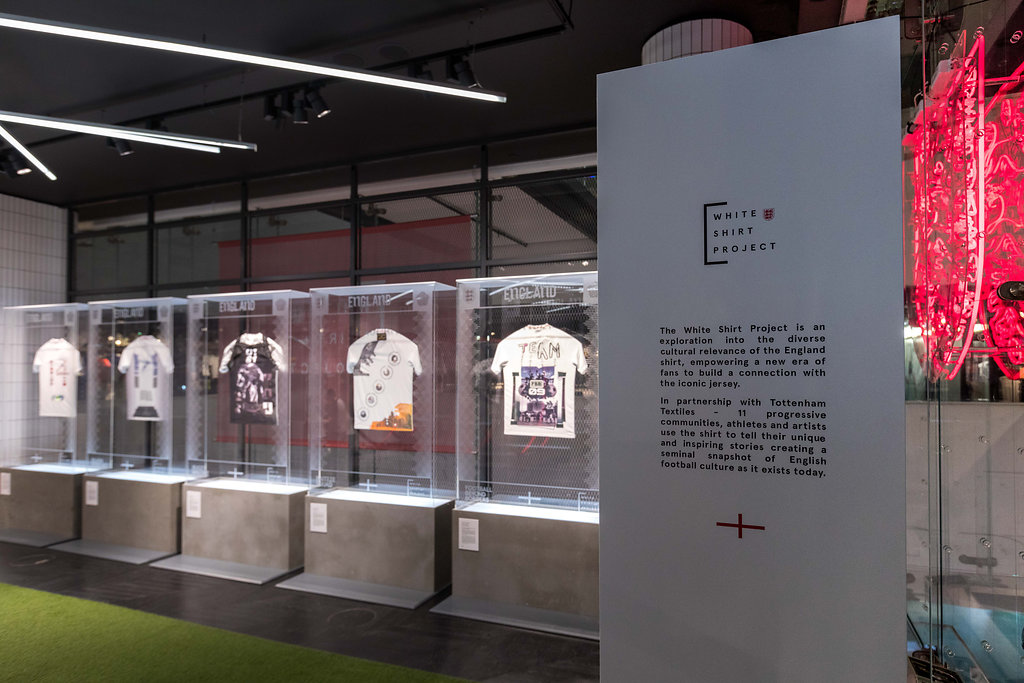
At an exhibition of the shirts earlier this week (pictured above), I had the chance to see the shirt in person – surrounded by the others who had taken part. I could feel the charge of excitement in the air. Felicia’s design includes pictures set out in a 3-1-3-4 pitch formation down the back of the shirt; SEASON issue covers, past homes, poignant pictures (such as a selfie from Chelsea winning the Champions League) and key dates, like the release of SEASON issue one. There also sits a row of embroidered flags along the neck to convey Felicia’s heritage, with the England flag taking pole position above them all. The shirt is also plastered in key words that Felicia felt were important to her journey such as “football, family, power, inclusion, community”.
When I ask Felicia what she thought of jersey culture in the past, she tells me that she “didn’t really like them” when she was growing up. “I just thought I’ve got a hat, I’ve got a scarf, but I’m just not sure about a shirt. But I said, ‘Once Chelsea wins the Champions League which is the highest club honour then yeah, I’ll get one’. Then they did and my dad bought me one and that was the first one I had, in 2012.” As we discuss my own childhood lust for a Charlton Athletic jersey, Felicia says that to her “a shirt was part of expressing your fandom… and at that time the shirt didn’t fit in with my style”. However, now she admits, “I’ve got a lot of blue in my wardrobe and way less red.”
Each of the participants in the White Shirt Project, including Hackney Laces, Bugzy, Brandon Coleman, Dujon Sterling and Football Beyond Borders, have worked alongside Nike and Tottenham Textiles to create their jersey. These 11 advocates from across the country reflect the real England; the real people who use the power of sport to drive them. It seems the true excellence is not just in the work itself, but also the diversity of those involved. “It’s not all London based, it’s not all players, there are musicians, community projects, teams, two publications, there’s an individual coach, there’s an amazing blind footballer,” Felicia enthuses. “When you talk about England fans, that includes men, women, that includes any age… and I think that’s what’s good about this project. There’s a real sense of diversity and hopefully a sense of inclusion that everyone can be part of this. We’re all in England, we’re all English.”
“It’s evident that the effect the White Shirt Project has had on Felicia is profound, providing affirmation that the work she is doing is important and that the work of those around her in the football community isn’t just about games”
Despite a history of racist incidents involving players and fans of her favourite team, her support for Chelsea is unwavering. “I don’t follow my club blindly, there are things that happen that are appalling,” she explains. “I’m black and so is my dad, so sometimes things happen and it’s like, why is it always our club?” It can be tiring to support any team within an industry that doesn’t tackle racism head-on, although steps seem to be being made to improve things for the future, such as FIFA introducing racism monitors in the build-up to the 2018 World Cup. Still, Felicia tells me if she could design a jersey for any team, it would, of course, be the very team that got her into it all.
It’s evident that the effect the White Shirt Project has had on Felicia is profound, providing affirmation that the work she is doing is important and that the work of those around her in the football community isn’t just about games. “It’s about the idea of being fearless and the fact that you’re doing something great, and doing something to help people or giving a different angle on things, and doing something that’s making a difference.” I can’t help but agree.
The 11 shirt designs will then be featured in an exhibition from 24 – 31 May at The Cube in Niketown London. The next issue of SEASON, focusing on themes of religion and faith, is out in early June featuring cover stars Eniola Aluko and Jeanette Kwakye

